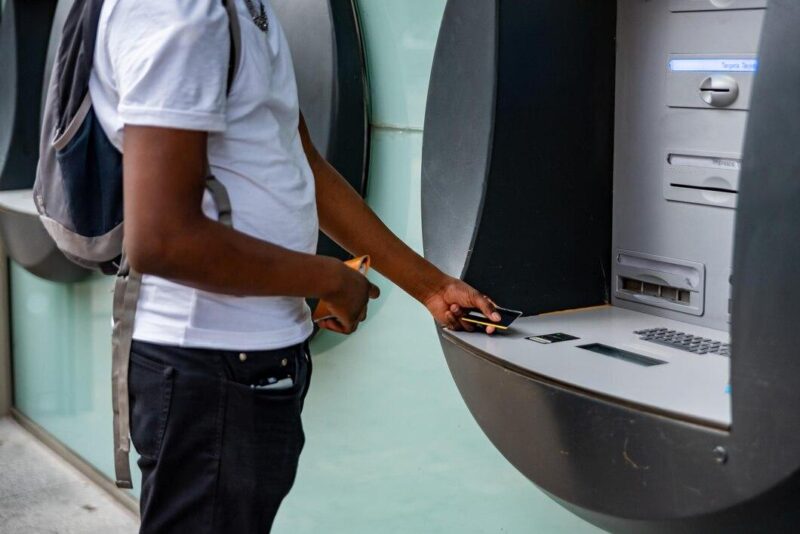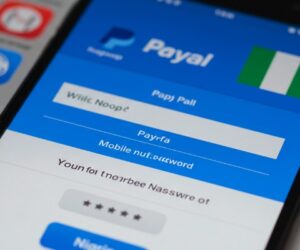When you pay for suya with your card at 11 p.m. in Lagos and the POS machine chirps “Approved” within seconds, you probably think it’s just your bank doing its job. But behind the scenes, there’s an unsung character working tirelessly to keep that flow of money smooth, fast, and accurate: the switch.
A switch is not a bank. It is not a fintech app. And it is definitely not the POS machine sitting on the vendor’s counter. It is the invisible referee in the digital payment world.
Its job is to capture electronic payment instructions, figure out which bank or wallet is supposed to move money, route that request to the right place, and bring back the result.
Think of it as the Lagos traffic warden that, miraculously, actually makes traffic move.

In Nigeria, switching companies like Interswitch, Unified Payments, and the Nigeria Central Switch (NCS) run by the Nigeria Inter-Bank Settlement System (NIBSS) are the ones keeping your transactions alive. Without them, your ATM card would only work at your bank’s machine, transfers would take ages, and “cashless” would remain a dream.
Meet the real players: Licenced switches in Nigeria
When you grasp that switches are the invisible traffic wardens of digital payments, it’s only fair to peek behind the curtain and meet the referees themselves. The Central Bank of Nigeria (CBN) grants Switching & Processing licences only to a select few, and these are the names making it happen today:
- Zone Payment Network Limited (formerly Appzone Limited)
- Arca Payments Company Limited
- Belema Financial Technology Limited
- Chamswitch Limited
- Coralpay Technology Nigeria Limited
- eTranzact International Limited – Nigeria’s first operational multi-channel switch since 2003
- Flutterwave Technology Solutions Limited – Granted a full switching licence in September 2022, gaining autonomy in bank-to-fintech transactions
- Habaripay Limited (the fintech arm of Guaranty Trust Holding Company)
- Hydrogen Payment Services Limited (the Access Holdings fintech switch)
- Interswitch Limited – The pioneering switcher since 2002, powering Verve and Quickteller backbones Central Bank of NigeriaWikipedia
- Network International
- Paystack Payment Limited – Quietly received a switching licence in April 2022, allowing direct interbank routing without middlemen
- Remita Payment Service Limited
- Say Switch Limited
- Teamapt Limited (Moniepoint)
- Terra Switching & Processing Company Limited
- Unified Payment Services Limited
- Uniswitch Technology Limited
- Xpress Payments Solution Limited
The rulebook
Read also: Examining NIBSS Instant Payments: Nigeria’s quiet fintech powerhouse
Now, Nigeria doesn’t leave switches to play freely like okada riders on Third Mainland Bridge. They are tightly regulated by the Central Bank of Nigeria (CBN). In fact, there’s an entire legal framework called the Guidelines on Transaction Switching in Nigeria.
First rule: no licence, no switch. If a company wants to process payments as a switch, it must first get a licence from the CBN. And this licence isn’t just a fancy certificate, it comes with responsibilities.
Switches are required to keep their networks open for reciprocal exchange. This is why your Access Bank card can work on a Zenith POS or why you can pull money from a First Bank ATM even if you’re a UBA customer. Interoperability is the holy grail.


But there are limits. A switch is not allowed to issue cards or act as an acquiring bank. Its job is strictly to move messages and funds between institutions. Think of it as a referee who blows the whistle but never plays the ball.
Security is another big deal. Every switch must put up strong defences including encrypting PINs, securing networks, and testing their systems regularly. They must comply with international standards like PCI DSS and EMV, the same standards Visa and Mastercard rely on globally. Even a momentary breach must be reported to the CBN.
Switches are also required to keep detailed transaction logs for at least seven years. That’s like being asked to keep a diary of every single game you’ve refereed, just in case someone comes back years later to complain. And if a fraud attempt occurs, it must be reported immediately.
Most importantly, they must always be available. Switching companies are expected to operate 24 hours a day, 7 days a week, with backup systems ready to kick in the moment something goes wrong. In a country where even the power grid goes on siesta, that’s a serious commitment.
Nigeria Central Switch
Even the referees need a referee. That’s where the Nigeria Central Switch (NCS) comes in. Run by NIBSS, the NCS was established to provide a single point of access for all switching companies. It ensures everyone plays fair and follows the same minimum technical and security standards.
The NCS is also designed to keep Nigeria connected to the outside world. Beyond linking banks and mobile money operators locally, it was built to prepare Nigeria for regional interoperability within the West African Monetary Zone. In simple terms: one day, your Nigerian ATM card may work seamlessly in Ghana or Sierra Leone, and the NCS will be the bridge making it happen.
Read also: What and how long does it take to get a fintech licence in Nigeria?
Why should you care?
Because without switches, the cashless economy Nigerians now take for granted would collapse. Every time you:
- Withdraw money from any ATM,
- Pay with a card issued by Bank A on a POS owned by Bank B,
- Transfer money between two different banks and see it drop instantly,
—you are benefitting from a switch doing its job. They are the silent backbone of modern finance.
And yet, like referees in football, switches are often invisible until something goes wrong. When you see “Transaction Declined” on a POS screen, your first instinct is to blame your bank. But sometimes, the hiccup lies in the switching network that connects all the moving parts.


The future of switching
So where do switches go from here?
First, the scope is expanding. Switching is no longer about ATMs and POS terminals alone. Today, switches are at the heart of mobile money, QR code payments, and even fintech apps. Tomorrow, they may also power real-time transactions for Nigeria’s Central Bank Digital Currency (CBDC), the eNaira.
Read also: Here is why fintech transactions are faster than traditional banks
Second, expect tighter regulations. With fraud and cybercrime rising, the CBN will likely demand more from switches including stronger encryption, real-time fraud detection, and even artificial intelligence to monitor suspicious patterns.
Third, the landscape may tilt between competition and consolidation. As more fintech entities create payment infrastructure, some may want to act like mini-switches. The CBN, however, is wary of monopolies or cartels, so the future may see specialist switches, dedicated to remittances, e-commerce, or international payments, emerge under stricter supervision.
And finally, there’s the dream of cross-border interoperability. The NCS was built with this in mind. Imagine walking into a café in Accra, paying with your Nigerian card, and the switch ensuring the payment clears instantly. That is not science fiction, it is the next logical step.








